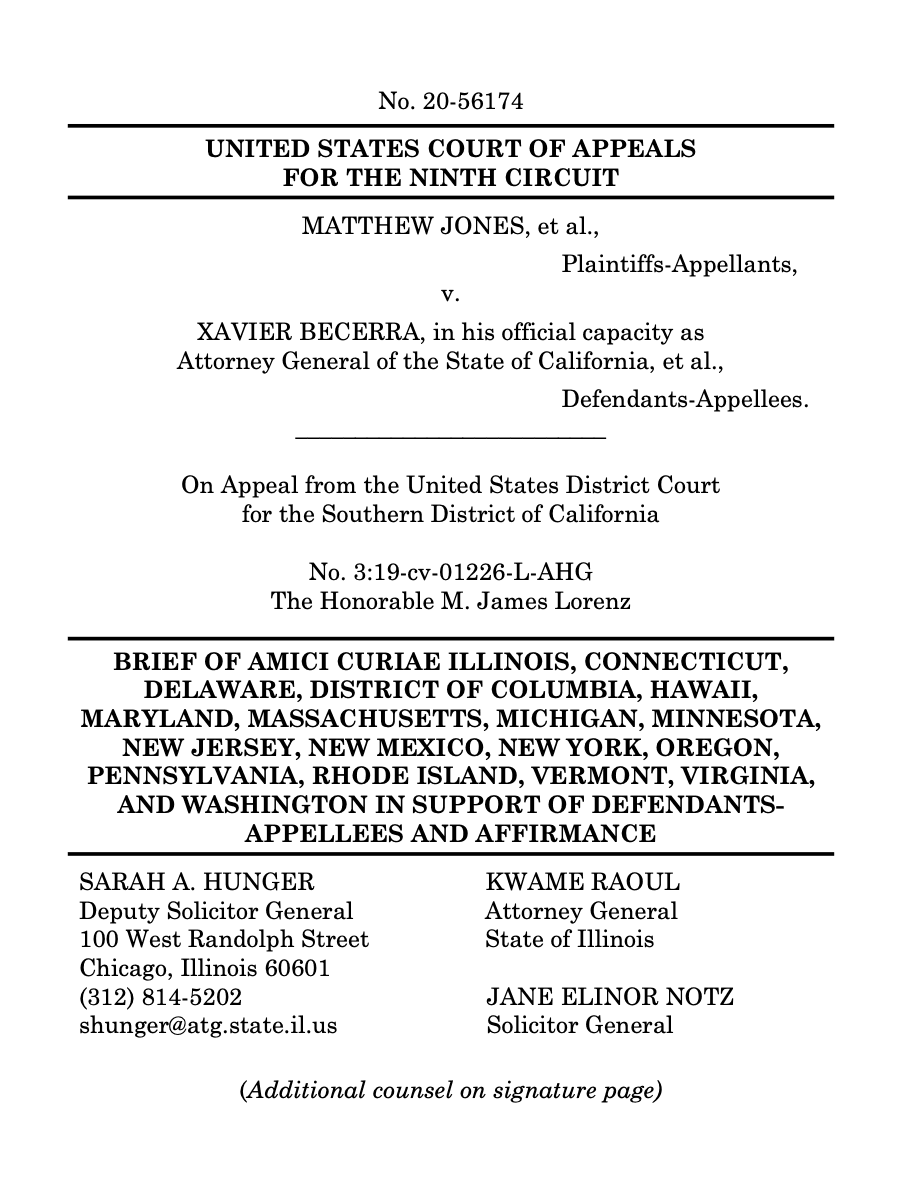
Summary of Argument
California recently enacted two measures amending California Penal Code § 27510—which regulates the sale and transfer of firearms by federally licensed firearms dealers to individuals under the age of 21—to further promote public safety and reduce gun violence by ensuring that only those young adults who complete adequate safety training are able to purchase long guns and semi-automatic centerfire rifles. The first measure, Senate Bill 1100, prohibits the sale or transfer of long guns by federally licensed firearms dealers to any person under 21, unless he or she has a valid hunting license, is an active or honorably discharged member of the Armed Forces, or is authorized to carry a firearm in the course and scope of employment as a member of law enforcement. See Cal. Penal Code § 27510(b)(1)-(3); S.B. 1100 (Cal. 2017). The second measure, Senate Bill 61, prohibits the sale or transfer of semi-automatic centerfire rifles by federally licensed firearms dealers to any person under 21, unless he or she is an active member of the Armed Forces or is authorized to carry a firearm in the course and scope of employment as a member of law enforcement. See Cal. Penal Code § 27510(b)(3); S.B. 61 (Cal. 2019).
Plaintiffs challenge section 27510, as amended by SB1100 and SB61, claiming that it unduly infringes upon the Second Amendment rights of individuals aged 18-20. But as the district court correctly concluded, laws regulating the sale of firearms to young adults are longstanding and presumptively lawful. Doc. 66 at 10. In any event, SB1100 and SB61 would not violate the Second Amendment because they do not impose a blanket prohibition on the sale or transfer of firearms to young adults and because regulations imposing age-based restrictions on the sale of long guns and semi-automatic centerfire rifles are reasonably related to California’s interests in public safety and preventing gun violence, including mass shootings. Id. at 13, 17.
As the amici States explain, the Second Amendment reserves to the States the ability to exercise their police powers by enacting sensible and varied regulations designed to protect the public. In fact, all States and the District of Columbia impose age-based regulations on the sale and use of, and access to, firearms within their borders. Although these regulations differ based on each jurisdiction’s needs, 17 States and the District of Columbia have a minimum age requirement of 21 for the sale or possession of certain categories of firearms.
Furthermore, the evidence presented by California—which included legislative findings, social science research, and statistical analyses—demonstrated that the measures enacted by SB1100 and SB61 are reasonably related to its state interests. Plaintiffs’ arguments to the contrary are based on an unduly heightened burden that, if applied, would restrict the States’ ability to devise local solutions to difficult and evolving problems. For these reasons, and those articulated by California, this Court should affirm the decision of the district court.